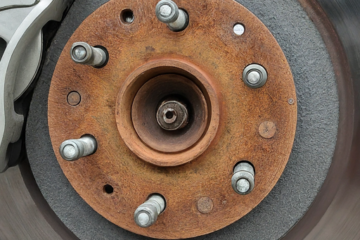Here are some preventive measures and maintenance practices you can follow:
- Regular inspections: Perform visual inspections of the alternator and its components. Look for any signs of damage, such as frayed wires, loose connections, or worn-out belts. Address any issues promptly.
- Battery maintenance: A weak or faulty battery can put extra strain on the alternator. Regularly check the battery’s condition, including its terminals and cables, and ensure they are clean, secure, and free from corrosion. If the battery is old or not holding a charge well, consider replacing it.
- Electrical system check: Periodically check your vehicle’s electrical system, including the wiring, fuses, and connectors. Look for any signs of wear, damage, or loose connections. Faulty electrical components can put additional strain on the alternator.
- Belt tension and condition: Inspect the alternator belt for signs of wear, cracks, or fraying. Ensure it has the proper tension. A loose or worn-out belt can slip or fail to rotate the alternator effectively, leading to failure.
- Preventive maintenance: Follow the manufacturer’s recommended maintenance schedule for your vehicle, including regular tune-ups and inspections. This can help identify and address potential issues before they cause alternator failure.
- Avoid excessive electrical load: Minimize the use of electrical accessories when the engine is not running, as it can put a strain on the alternator. Limiting the simultaneous use of power-consuming devices such as high-powered audio systems, additional lights, or heating elements can help reduce the load on the alternator.
- Proper jump-starting procedures: If jump-starting a vehicle, follow the correct procedures to avoid damaging the alternator. Connect the jumper cables correctly and ensure the donor vehicle is running before attempting to start the vehicle with the dead battery.
- Be cautious with aftermarket modifications: If you plan to install aftermarket electrical accessories or modifications, ensure they are properly installed and do not overload the electrical system or strain the alternator.
Remember, regular maintenance, timely repairs, and addressing any warning signs promptly can help extend the life of your alternator and reduce the chances of unexpected failure. If you suspect any issues with your alternator, it is recommended to consult a qualified mechanic or technician for proper diagnosis and repair.
